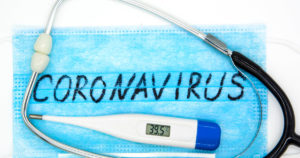General Information on the Coronavirus Stimulus Bill
April 1, 2020 In the midst of a nationwide COVID-19 pandemic, millions of Americans are facing unprecedented financial hardships and uncertainty about the future. Luckily, Congress passed the “Coronavirus Aid, Relief and Economic Security Act”, or CARES Act. The bill is one of the largest pieces of legislation ever written and has been designed to provide financial and economic relief to the nation during this extremely difficult and frightening time.
In the midst of a nationwide COVID-19 pandemic, millions of Americans are facing unprecedented financial hardships and uncertainty about the future. Luckily, Congress passed the “Coronavirus Aid, Relief and Economic Security Act”, or CARES Act. The bill is one of the largest pieces of legislation ever written and has been designed to provide financial and economic relief to the nation during this extremely difficult and frightening time.
For weeks now, cities and states across the country have been limiting businesses and placing residents under social isolation and shelter-at-home orders in order to protect the public. COVID-19 is a highly contagious respiratory illness caused by a group of viruses called coronaviruses. The Centers for Disease Control and Prevention (CDC) report that the virus transmits primarily through contact with an infected person’s coughing or sneezing; it also spreads when an infected person touches an object or surface and then touches their eyes, nose, or mouth. COVID-19 is usually accompanied by flu-like symptoms such as a fever, shortness of breath, and cough.
According to the Federal Reserve, millions of Americans have already lost their jobs during this crisis. The Fed also expects this number to continue to increase, peaking around as many as 47 million. A recent poll conducted by NPR, Marist, and PBS NewsHour suggests that 18% of adults have been laid off or have had their regular, fulltime hours cut so far. The poll also indicates that lower-income households are being hit particularly hard by COVID-190-related cuts and layoffs. Certain workers face particularly high risks for job loss, like individuals in sales, production, food preparation and service workers, airline attendants, barbers, and hair, makeup, and nail stylists.
How the Bill Will Help
The CARES Act establishes a $2.2 trillion stimulus package, with many of the provisions in place aimed at helping struggling workers, small business, state and local governments, and hospitals. Here’s a quick breakdown on what the bill offers:
- $1,200 checks, or “recovery rebates” to go to millions of Americans, totaling $290 billion in costs. Eligibility is determined by taxpayers’ 2019 or 2018 tax returns, and gives $1,200 per adult and $500 per child. These stimulus checks are expected to arrive via direct deposit or mail and will take approximately 4-6 weeks to process.
- An increase in unemployment compensation benefits, totaling $260 billion. Even workers who temporarily lose their jobs or expect to return to work are eligible to apply for benefits. Unemployment insurance pays $300/week on average, but with the bill, the federal government will provide an additional $600 to individuals receiving benefits for the next four months.
- Aid to small businesses totaling $375 billion. The bill will provide financial assistance with zero-interest loans for companies with fewer than 500 employees. The loans may be forgiven if employers abide by specific conditions, such as not firing employees. Loans may also be forgiven for firms who employ tipped workers (like bars and restaurants) if the employer uses the funds in order to provide additional wages to workers.
- Emergency aid for state and local governments totaling $175 billion, with each state receiving a minimum of $1.5 billion in federal funding.
- Increased hospitals and healthcare spending, totaling $180 billion. This money is intended to help strengthen the healthcare system’s infrastructure to prepare for the coronavirus. Funds can be used on things like testing supplies, protective gear for medical personnel, and to establish emergency operation centers.
Some other key elements of the CARE Act include the creation of certain federal tax provisions (such as extending the date for individuals to file and pay their taxes) and giving economic aid to large businesses.
Stay up to date with important health and safety updates for residents in the state of Pennsylvania and nationwide updates on COVID-19 from the CDC.
We will continue to update our readers as this story as it develops. If you need assistance filing a claim for benefits, someone at our firm can help. Please submit an inquiry online.
Philadelphia Personal Injury Lawyers at Galfand Berger, LLP Representing Injured Individuals Since 1947
With offices located in Philadelphia, Bethlehem, Lancaster, and Reading, Galfand Berger serves clients throughout Pennsylvania and New Jersey. To schedule a consultation, call us at 800-222-8792 or complete our online contact form.
 Google Screened
Google Screened
